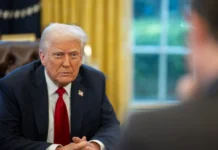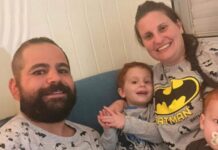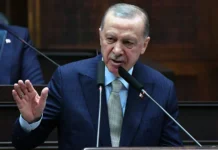In a little more than a week, we will seclude ourselves during the holiday of Pesach. The fortunate ones among us will share the seder table with close family members; those who habitually share our homes, with whom have been cloistered for the last several weeks already. Others will sit with a spouse or other family member as per the directive of our rabbis and medical advisers. But many will only have the Haggadah for company. My mother is one of this group; she will be completely alone on Pesach for the first time in her life. She has asked to hear the “Mah Nishtanah” (“Four Questions”) before Yom Tov begins by her youngest grandchildren via Facetime.
And yet, we consider her privileged as well; there are others among us who are writhing in agony with a relative in the hospital, or even more terrible, those who will just be getting up from shiva to observe Pesach without their beloved ones.
The cold, terrible irony of our current plight is not lost on anyone. Even a non-Jewish friend of mine from Boston asked me this week if marking the plagues of Egypt next week was different for me this year since we’re in the middle of one. Somehow, irony is simply not the right word.
This plague has, shockingly, brought some of the key lessons of Pesach home. We are able to appreciate and understand this most important holiday in a new way this year. Now we know how the Egyptians felt when they were plagued; they were plagued 10 horrible times by a God they neither believed in nor understood.
Each day, as we cling to the schedules our brave schoolteachers and administrators have given our children, we realize that the essential work they are doing to keep our children secure—shielding and protecting our children from a total lack of structure, and a breakdown of our societal norms.
Each day, as my whole family rises at the crack of dawn to drive my husband to the door of his building at Columbia-New York Presbyterian Hospital, I realize, again, that he has chosen an essential profession; he can’t stay home and cloister with us because he must keep the labs churning out results so patients can be treated as best as humanly possible. For better or for worse, we have to accept that this is our lot now. I wholeheartedly pray that he and all our health-care providers will stay safe. They and all our first responders out there will forever remain heroes to me.
Each day, and even now, I know that several friends and dear relatives lie ill, some gravely in the ICU. These are good, kind people. Belatedly, could we realize that the 10 terrible plagues on the Egyptians might, just maybe, have affected good or just regular people as well? Singing about frogs and the other plagues so cheerfully might not feel so funny this year. Were those affected by the plagues of Egypt possibly mothers who loved their children? Fathers who loved their sons? Spouses who had spent their whole lives caring for one another? Families who were just going about their business?
No one disputes that Egypt certainly had a wicked Pharaoh, but they were plagued as a group, whether they were personally evil or not. They were plagued because they were Egyptians and God heard the cries of the Jews and decided to take us out of their land. While the plagues began—presumably as a result of the Egyptians enthusiastically taking on their roles as oppressors and casting Jewish male children in the Nile—there is a midrash that says that the firstborn were killed because they had prevailed upon Pharaoh to remove the Jews lest they be killed, and when Pharaoh demanded such protesters be taken away, each firstborn son took out a sword and killed his father, thus incurring further divine wrath (Midrash Tehillim 136:6).
However, the scribe Ibn Ezra says that the killing of the firstborn was the main objective of the Exodus, foretold to Avram in Genesis 15:12-14 (Ibn Ezra on Psalms 135:8). There is even a mention of God-fearing Egyptians in Rashi (Shemot 14:7), but it’s a mixed message because they still gave their horses to the “war effort.” We also know there were Egyptians who survived the plagues: Bat Pharaoh (“Pharaoh’s daughter”) for example, for her work in protecting the Jews and saving Moses as a baby, and others who defied orders and joined the Jews as they left Egypt.
But now we know what a plague is, even if we don’t know God’s ultimate objective. We know what Divine wrath looks like.
Today, God has plagued all of humanity. Jews are being plagued as much as any other group. There is no one unaffected.
All we have left is our belief in a merciful God—a God that hears prayer, a God that will not forsake us. The Talmud teaches that God prays as well. Rabbi Allen Schwartz, a beloved instructor of Bible at Yeshiva University, reminded me that this is found in Talmud Brachot 7a, derived from Yeshayahu (56:7), which refers to God’s house of prayer rather than our house of prayer. The Gemara asks what God prays in His own house of prayer and records the following: “May it be My will that my mercies shall overcome my anger and that my mercies overcome all my other characteristics so that I may comport myself with my children in mercy and deal with them magnanimously and leniently.”
May it be God’s will that he pray for us now and have mercy on all of His children.


























